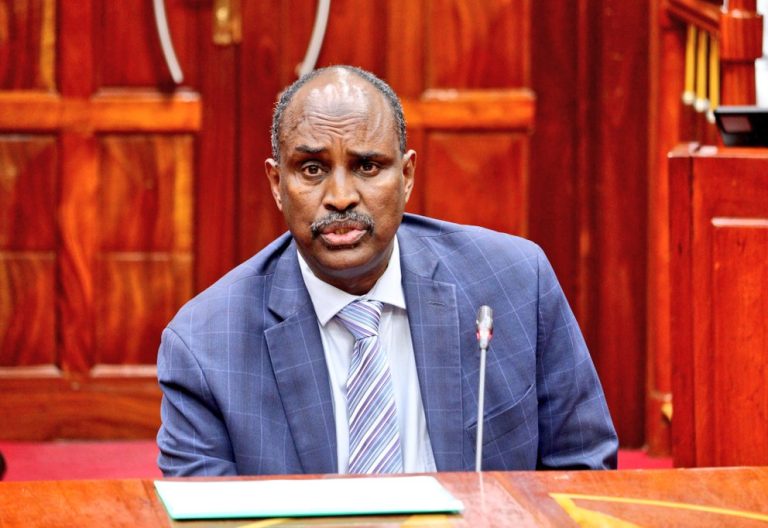China joint statement sets the record straight on true democracy

Democracy represents an important achievement of humanity in the advancement of political civilisation, and development an eternal pursuit throughout human history. People of different countries and regions, through their unremitting explorations, have brought about distinctively varied forms of democracy and development paths, presenting a magnificent spectacle of flourishing human civilisations.
Political parties, as they are in a position to build, preserve and develop democracy, have been charged with the important mission to realise democracy and promote development. On December 13, 355 political parties, social organisations and think tanks from 140 countries and regions in conjunction with the International Department of the Communist Party of China Central Committee released a joint statement of world political parties, social organisations and think tanks on making independent efforts to explore the path toward democracy and working together to promote common development.
Firstly, diversity defines the fascinating feature of human civilisations, and indeed the source of vitality and dynamism for the development of the world. The ways and means of realising democracy are varied. Since different countries and regions may not necessarily share the same history, culture, social system and development stage, there does not exist any system of democracy or pattern of development that is applicable to all countries. The practice of judging the rich variety of political systems around the world by a single yardstick, or observing the colorful political civilisations of the humanity from a monochromatic sight, is in itself undemocratic. Nor is it conducive to development.
Secondly, the best way to evaluate whether the political system of a country is democratic and efficient is to observe whether the succession of its leading body is orderly and in line with the law, whether all people can manage state affairs and social, economic and cultural affairs in conformity with legal provisions, whether the public can express their requirements without hindrance, whether all sectors can efficiently participate in the country’s political affairs, whether national decisions can be made in a rational, democratic way, whether professionals in all fields can be part of the team of national leadership and administrative systems through fair competition, whether the ruling party can serve as a leader in state affairs in accordance with the Constitution and laws, and whether the exercise of power can be kept under effective restraint and supervision.
Thirdly, the statement noted that the view that the judgement on whether a country is democratic hinges on whether the people can become the real masters of the country. While it is necessary to observe whether the people can enjoy the right to vote, it is even more important to observe whether their right of extensive participation is guaranteed. While it is necessary to observe what verbal promises the people get during election campaigns, it is even more important to observe how many of the promises are fulfilled after elections.

While it is necessary to observe the political procedures and rules stipulated in regulations and laws, it is even more important to observe whether these regulations and laws are rigorously enforced. While it is necessary to observe whether the exercise of power follows democratic rules and procedures, it is even more important to observe whether the exercise of power is truly subject to the supervision and restraint by the people.
Fourth, democracy is the right of all peoples, rather than an exclusive privilege of a few. The judgement on whether a country is democratic or not should be made by their people.
Fifth, the goal of the development of human society should be to improve people’s wellbeing and to achieve well-rounded human development. The promotion of democracy should focus on the continuous realisation of people’s aspiration for a better life and the upliftment of their sense of fulfillment, happiness and security.
Currently, countries need to especially strengthen cooperation in the fields of poverty alleviation, food security, COVID-19 response and vaccines, development financing, climate change and green development, industrialisation, digital economy and connectivity, and to accelerate the implementation of the UN 2030 Agenda for Sustainable Development, so that concentrated efforts are devoted to solve problems of the greatest, most immediate and most practical concern to the people.
Sixth, to make international relations more democratic lies in putting true multilateralism into practice. As mankind is faced with various challenges and global issues, the effective response thereto can only be found in more inclusive global governance, more effective multilateral mechanism and more proactive regional cooperation.
Seven, efforts to build a human community with a shared future point the right direction to the development and progress of civilisation. The shared human values of peace, development, fairness, justice, democracy and freedom must serve as guidance in the endeavour to build such a community with a strong sense of responsibility for the future of humankind, so that countries with different social systems, ideologies, histories, cultures and levels of development can share interests, rights and responsibilities in international affairs and work together to build a better world.
The writer is the Executive Director of South-South Dialogues, a Nairobi based research and development communication think tank.








